How Does Plastic Recycling Help the Environment
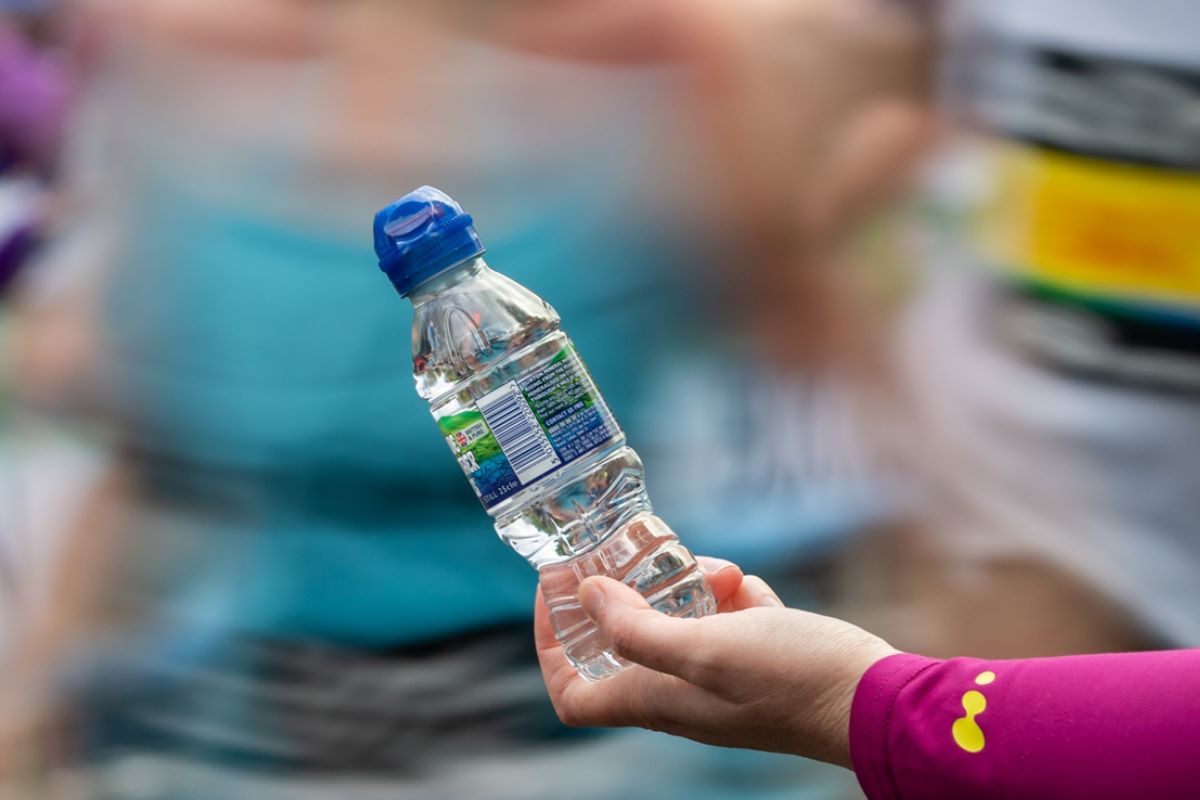
We’ve all been told to do our bit for the environment by recycling. But, what’s the right way to sort your plastic at home ready for recycling? And, after you’ve popped the plastic in the recycling bin, you might be wondering how it helps contribute to the protection of the environment. This guide will explore the possible impacts of recycling and give you some practical tips on how to sort your plastic for recycling at home, including decoding recycling symbols. Just keep reading for all the information.
How Recycling Plastic Benefits the Environment
If not disposed of responsibly, plastic waste can pose a significant environmental threat, but recycling can be part of the solution. By transforming plastic back into valuable resources, we can help to minimise pollution, conserve energy, and build a more sustainable future. Here's how:
Fosters a Circular Economy Through Bottle-to-Bottle Recycling
A circular economy aims to eliminate waste by keeping resources in use for as long as possible. Instead of producing new plastic from fossil fuels, we can recycle existing bottles into new ones, creating a closed-loop system. This reduces our reliance on virgin materials and minimises waste. For example, our BUXTON bottles are made with 100% recycled plastic (excluding cap and label), demonstrating the power of this circular model.
Reduces CO2 emissions and energy usage
Using recycled material reduces the need to extract, refine, and process oil, a key ingredient in creating new plastic products. This means that packaging using recycled material reduces CO2 emissions and is less energy intensive.
Reduces littering
Recycling plastic helps keep it out of our streets, parks, and oceans. It also changes how we see plastic – less as rubbish and more as something useful. That shift means we're less likely to litter, which is good news for wildlife and our environment.
Promotes a sustainable lifestyle
By choosing to recycle, we help limit the impact of plastic use on our environment. Recycling helps to increase the availability of recycled plastic, meaning more businesses can incorporate it into their products, thereby reducing their individual environmental footprint, and empowering consumers to make more sustainable choices.
How to sort your plastic at home ready for recycling
Recycling plastic in the UK can vary depending on your local council. Each area has its own collection system, so it's essential to check your council's website for the most accurate guidelines.
It's also worth noting that recycling practices in England are set to change with the introduction of the new Simpler Recycling regulations. These regulations will take effect for households from the 31st March 2026 and aim to standardise recycling collections across the country, making it easier for everyone to sort their items for recycling correctly.
Here are some items that can generally be recycled in the UK (make sure to check the packaging for more information).
-
Plastic bottles
-
Plastic containers
-
Shampoo and conditioner bottles
-
Cooking oil containers
-
Most cleaning product containers
-
Bleach and laundry detergent containers
-
Yoghurt and butter tubs
-
Plastic films and flexibles (Plastic films and flexible packaging are typically not collected from home. However, many larger supermarkets now offer collection points for these types of plastic. And, under the same Simpler Recycling regulations we mentioned previously, this packaging should be collected from homes from the 31st March 2027.)
-
Paper and card
-
Aluminium and steel cans
-
Glass (including bottles and jars)
-
Juice and milk cartons
But before you throw your plastic in the recycling bin, there are some things you should do beforehand:
Empty the container and rinse if necessary
Keep plastic bottles clean so you can recycle them. They don’t have to be spotless, but any leftover water (or other liquids and residue) can contaminate other materials, which could mean they are unable to be recycled. Don’t let your sorting efforts go to waste, make sure you empty and rinse plastic containers before they go into the recycling bin.
Check your Labels
Always check the label for specific instructions. They can help
What do the plastic recycling symbols mean?
When you’ve used a plastic item, there should be information on how it’s recycled. This is shown by a little triangle made up of three arrows with a number or letter in the centre of it. These numbers and letters are an identification for the recycling teams. Plastics are classified into one of seven categories with different materials being more or less easy to recycle. We’ve listed them for you below.
The ones to look out for that can commonly be sorted for recycling are:
 |
PET or rPET (Polyethylene Terephthalate) is widely recycled. |
 |
HDPE (High-Density Polyethylene) is widely recycled. |
 |
LDPE (Low-Density Polyethylene) can be recycled at large supermarkets. See OPRL label. |
 |
PP (Low-Density Polyethylene) will usually be used in Tupperware and disposable cups. It's hard or not possible to recycle, so it’s best to try to reuse or avoid it. |
 |
Signals to consumers to keep caps attached to bottles for proper recycling, ensuring efficient processing. Only plastic caps over 40mm on metal aerosols should be removed and labelled separately. |
 |
Informs consumer to recycle this type of packaging at recycling points in selected supermarkets. |
 |
Alerts consumers to take off any shrink wrap or plastic sleeve covering the bottle or container. This helps ensure the main packaging is properly processed and recycled |
Hopefully, now you know all about plastic recycling’s effect on the environment. We’ve also laid out how to sort your plastic for recycling and what the recycling symbols mean, so you’re clued up on how to best take part in recycling in your daily lives to help protect the environment.
Plastic recycling isn’t the only sustainability programme we take part in – we’re also passionate about water stewardship. Make sure you check out our article on this, next.
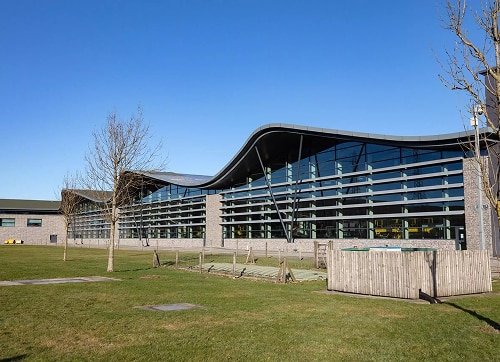
Championing Water Responsibility: Buxton Bottling Site Under AWS Review
The Nestlé Waters & Premium Beverages bottling site in Buxton will be audited under the Alliance for Water Stewardship standard.
Take a look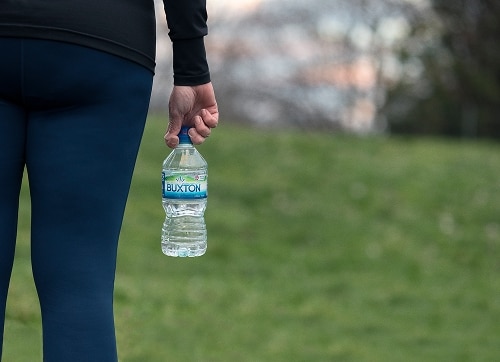
What Happens to a Buxton Bottle?
At Buxton, our commitment extends beyond just providing refreshing water and includes a strong focus on the circularity of our packaging.
Take a look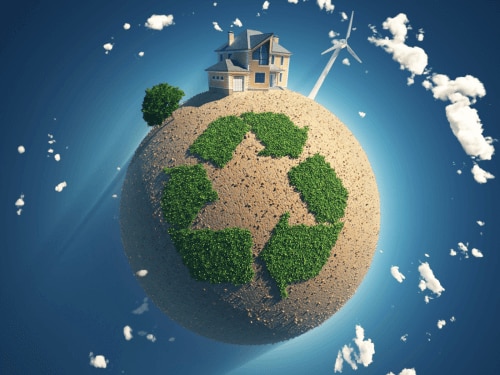
Recycling Plastic Bottles at Home: Easy Tips
Learn about recycling plastic bottles at home with simple tips. Discover why recycling is important and how your everyday habits can help protect the planet.
Take a look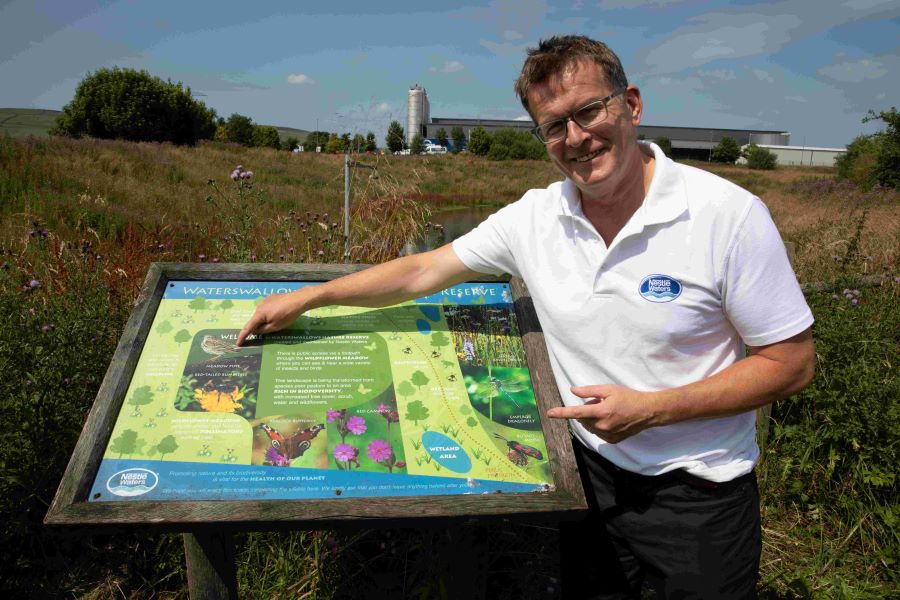
Our Water Hero: Craig Airey
Craig Airey, Project Civil Engineer at Nestlé Buxton, transforms Waterswallows Nature Reserve into a vibrant habitat, planting 200+ trees and wildflower meadows.
Take a look
Buxton water site maintains platinum status for its caring for water approach
Buxton water site maintains Platinum status for responsible water management and community engagement. Partnerships with Derbyshire Wildlife Trust and restoration projects demonstrate commitment to sustainability.
Take a look
How Does Plastic Recycling Help the Environment
We all know that plastic recycling is important, but how does it help the environment? And how do we recycle at home? Find out today.
Take a look
Buxton Awarded Certification from The Alliance of Water Stewardship
Buxton® are pleased to announce that we have been awarded a top score for the Alliance of Water Stewardship. Read about how we proudly achieved this.
Take a look
BUXTON® and Biffa Partner to Reduce Plastic Bottle Waste
Find out more and discover how you can join us to help reduce the number of plastic bottles going to waste.
Take a look